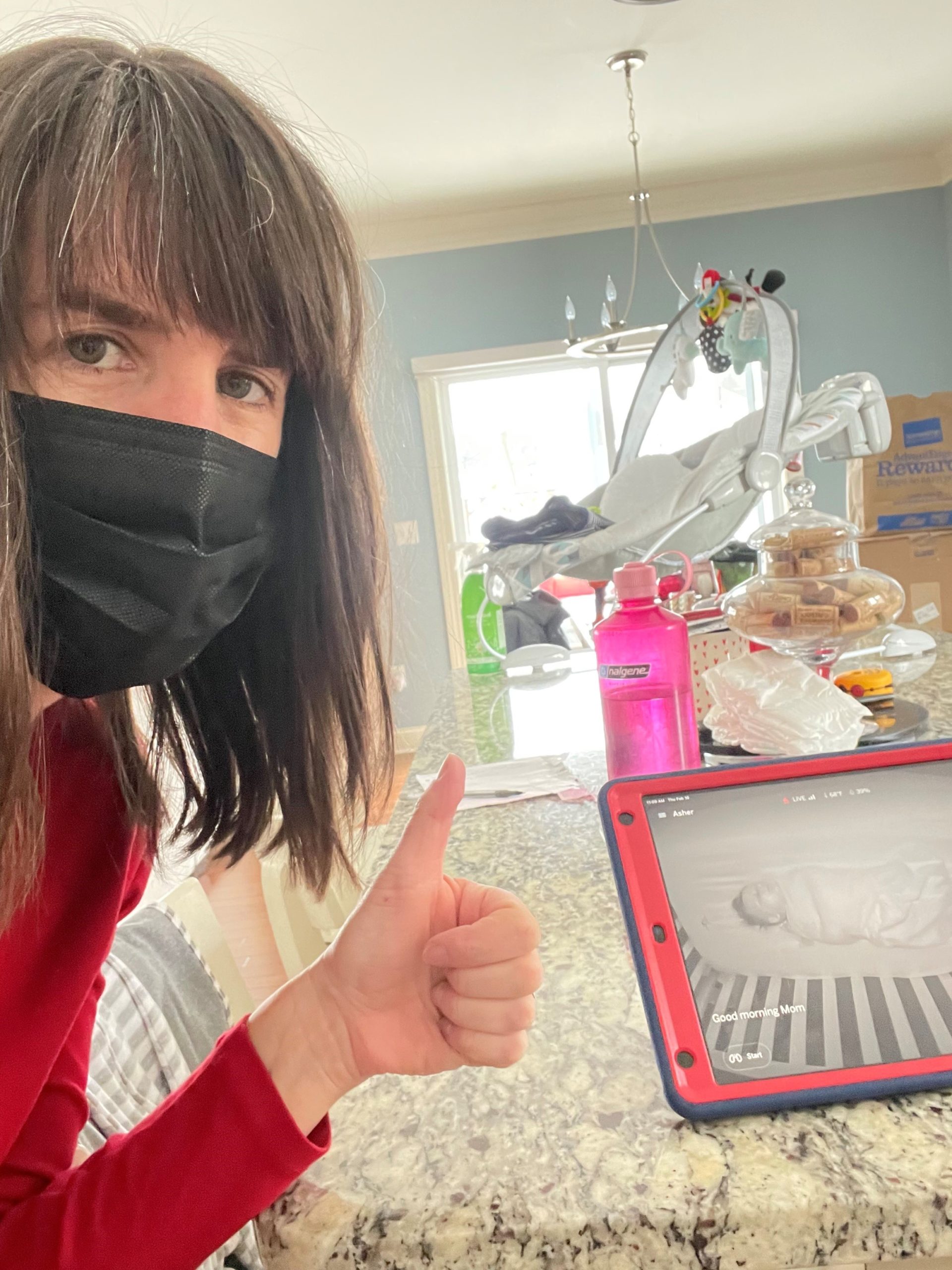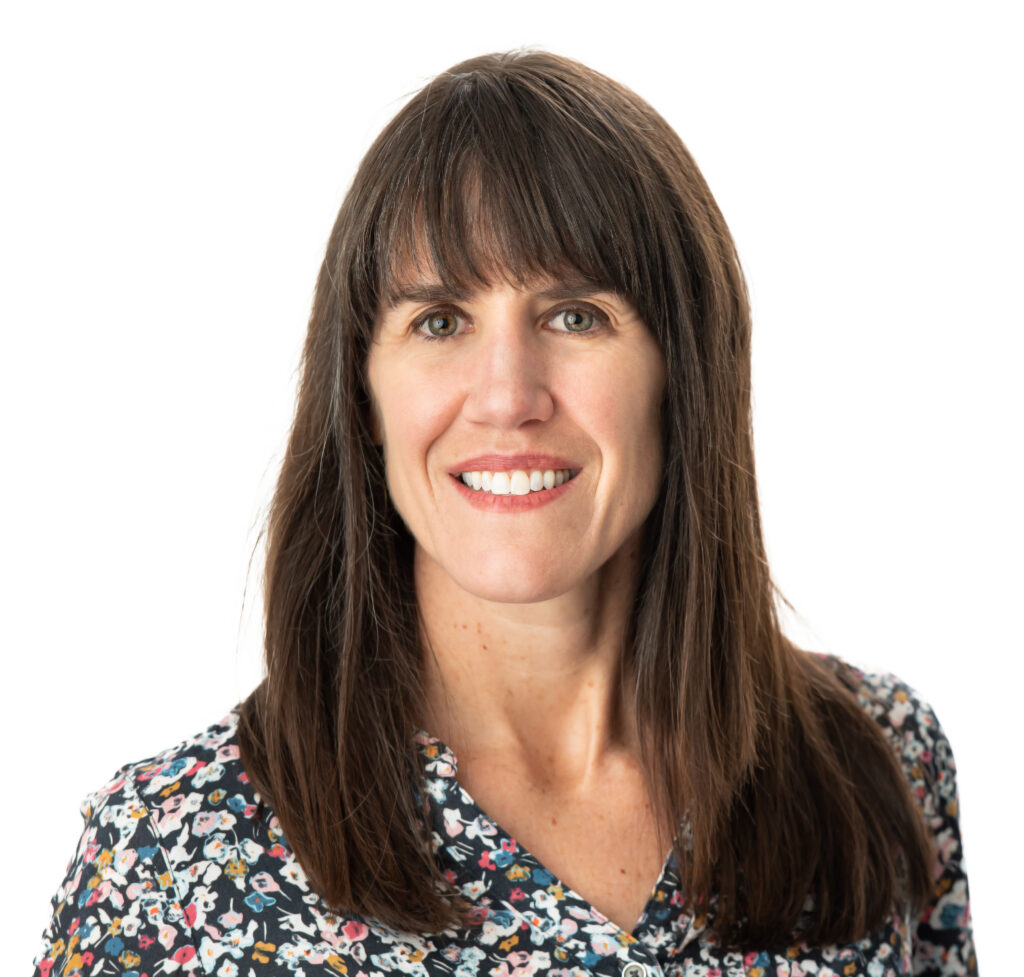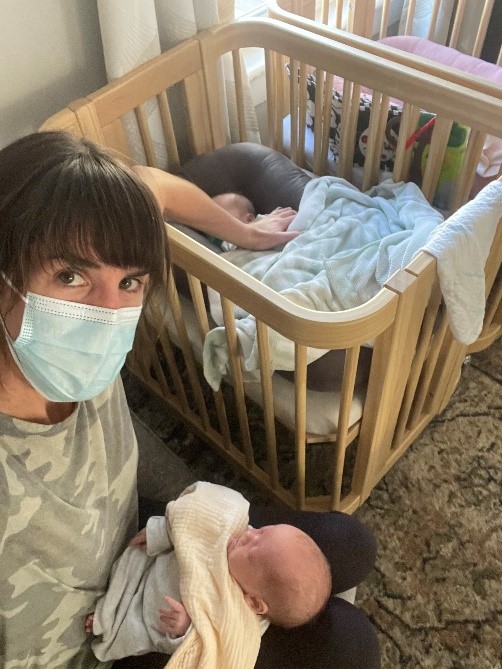Navigating the “Fourth Trimester”: Guidance from a Postpartum Doula

When I found out I was pregnant with my first child in late 2013, I thought I had it all figured out. I consulted with friends, mulled over pregnancy blogs, kept all of my doctor’s appointments, read What to Expect When You’re Expecting, and, most importantly – I had the perfect matching Pottery Barn bedding set in her nursery.
And then, I was sent home from the hospital with my newborn, and realized I didn’t really know anything at all.
Maybe that’s a little dramatic, but the transition into what’s commonly referred to as the “fourth trimester” was a doozy for me. My husband was fortunate to take two weeks off from work to help acclimate us to life with a newborn, but once he returned and I was on my own, I felt completely lost. Breastfeeding was much harder than I anticipated it would be. Even though we had a lot of family around, I still felt incredibly lonely, emotional, and sleep deprived. Dishes were piling up in the sink, the laundry seemed endless, and I began to wonder how I was ever going to keep up.
Though I was able to lean on my husband and support system to ultimately overcome my so-called “baby blues” and get into a good new rhythm, the statistics behind those that don’t are staggering. According to recent data released by the Centers for Disease Control and Prevention, approximately 84 percent of pregnancy-related deaths studied were deemed preventable, and even more shocking, 53 percent of the deaths occurred between several days to one year after women gave birth.

CDPHP® regularly analyzes our own medical trends, and we, too, have seen the struggle our pregnant and postpartum members can go through. That’s why we are proud to offer a $1,500 doula reimbursement benefit to commercial members on most plans*.
Starting April 1, 2025, CDPHP will cover doula services provided by an in-network doula during pregnancy and up to 12 months after the end of pregnancy for Medicaid and Essential Plan members. If you need help finding a doula, contact a member of the CDPHP Care Team at 1-888-942-3747.
I recently had the chance to speak with a local doula, Cecily Beane Cullinan, better known as the Round Lake Doula, to learn more about why this benefit is so critical for our members.
Doulas can meet new parents where they’re at

Cecily’s take on postpartum doula services is simple: “New parents want what we all want as humans – to be heard, validated, and normalized. And let’s not forget that this is a huge change for support partners as well. Bringing a new baby home is an adjustment for everyone – your relationship is changing with your partner, and that can take some conversations and awareness. A partner may not know what to ask, so that’s where I come in. I can talk with the couple and offer them some suggestions on how to support one another during this fragile time.”
Postpartum doulas like Cecily typically visit homes of new parents weekly for 2-3 hours, or whatever schedule works for both parties. Cecily says, “Most days, I come in and assess the situation. Maybe the parent or both parents desperately need a nap, so I’ll care for the baby while they get their rest. If I see that a new parent is having trouble nursing, I can offer suggestions and guidance. Perhaps the dishes are piling up in the sink or there are 70 pieces of tiny baby clothing that need folding. I will take care of that for them to help check at least a few things off a never-ending list of to-dos.”
If there are mental health concerns, a doula can help identify them – and act

Cecily is a certified postpartum doula by DONA International, the leader in evidence-based doula training, certification, and continuing education. As part of this certification, Cecily says that doulas are taught to stay NEAR – that is, nurture, educate, assess, and refer – four tenets she follows closely. “If I come into a home for a visit and notice that a parent is feeling depressed, anxious, or helpless – it is within my scope to offer a listening ear and validation (and sometimes that can be enough to turn the tide). However, if it doesn’t seem to be enough and these feelings persist, I can refer a client to additional support and help the client advocate for themselves. Care for new parents has been historically siloed – resources are out there, but at a time where we’re at our most depleted, we must then summon the strength to seek out additional help. That’s where I can come in and offer some of that help, or refer for more if needed,” states Cecily.
In light of recent research and events involving pregnancy and the postpartum period, Cecily says the CDPHP doula benefit is more important than ever to help bridge a gap in care that currently exists and can potentially save lives.
Doula services can go a long way in improving health outcomes
The disparities that exist in maternal care have been well documented, which is yet another reason why having a health plan like CDPHP that breaks down barriers to accessing doula services is so critical to moving care forward.
Qualified doula services have been cited to improve several health outcomes, including reducing the likelihood of having a c-section, preterm birth, or the risk of experiencing a birth complication. Doula services have been found to improve maternal health equity and empower patients to advocate for themselves and their goals during pregnancy and childbirth. Doulas can also help facilitate conversations between providers, CDPHP as the health plan, and the new parents’ loved ones.
How to get started with doula services
“Whether you’re considering a birth doula, postpartum doula, or both, it’s a good idea to set up meetings to ensure you find a good fit, and this can be anywhere from 3 to 8 months into pregnancy, or even after birth if you realize you’re really in need of support once baby arrives,” advised Cecily. “DONA International is a great place to start to research local doulas. It’s my hope that because of this CDPHP benefit, more health plans will follow suit, and that the medical community will begin to refer their patients to our services. We have a lot to offer.”
For more information on how CDPHP supports members during pregnancy and postpartum, visit cdphp.com/pregnancy.
*Participating in these services is dependent on plan type and may not apply for self-funded plan members. Log in to your member account to check your eligibility.
 The Daily Dose
The Daily Dose
Comments are closed.